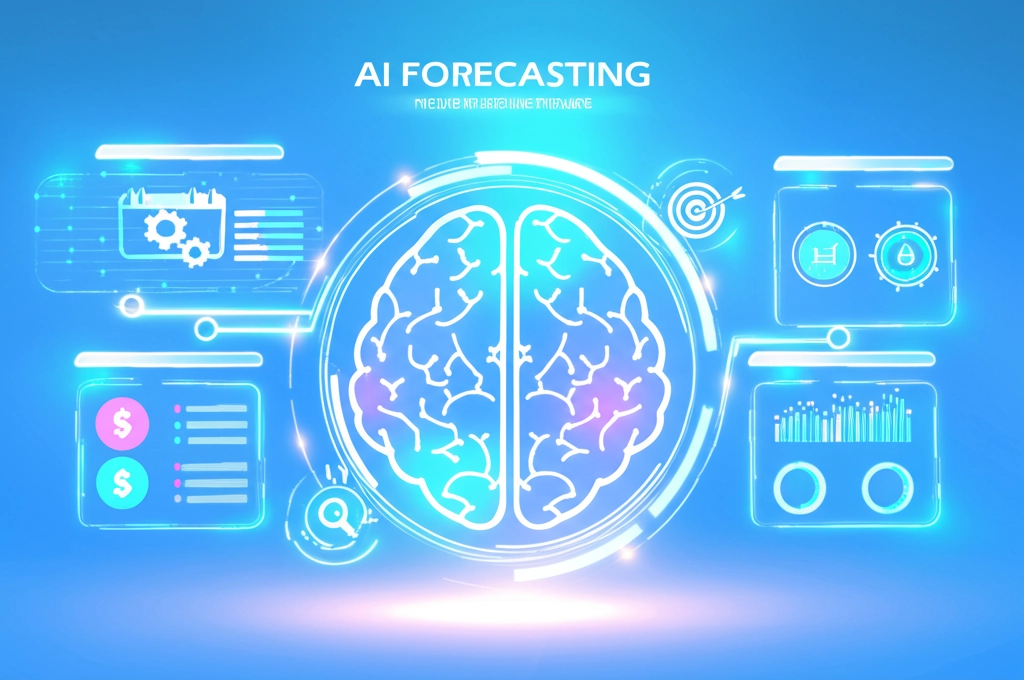
How AI Forecasting is Revolutionizing Business Planning
In today's rapidly evolving business landscape, the ability to accurately predict future trends and outcomes has become a critical competitive advantage. Traditional forecasting methods, often reliant on historical data and human intuition, are increasingly being supplemented or replaced by sophisticated AI-powered solutions that offer unprecedented accuracy and insights.
Artificial Intelligence has fundamentally transformed how businesses approach forecasting. By leveraging machine learning algorithms, natural language processing, and deep learning techniques, AI forecasting tools can analyze vast amounts of structured and unstructured data, identify complex patterns, and generate predictions with remarkable precision.
One of the most significant advantages of AI forecasting is its ability to continuously learn and adapt. Unlike traditional statistical models that require manual recalibration, AI systems automatically adjust their parameters based on new data and changing market conditions. This dynamic learning capability ensures that forecasts remain relevant and accurate even in volatile environments.
For sales teams, AI forecasting tools have proven particularly valuable. By analyzing customer behavior, market trends, and internal sales data, these systems can predict not only overall revenue but also individual deal outcomes with impressive accuracy. Sales managers can identify at-risk opportunities, allocate resources more effectively, and provide targeted coaching to team members.
In supply chain management, AI forecasting has revolutionized inventory optimization and demand planning. By incorporating external factors such as weather patterns, social media sentiment, and economic indicators, these systems can anticipate demand fluctuations that would be impossible to predict using traditional methods. This enhanced forecasting capability helps businesses reduce excess inventory, minimize stockouts, and improve customer satisfaction.
Financial planning and budgeting processes have also been transformed by AI forecasting. CFOs and financial analysts can now generate more accurate revenue projections, expense forecasts, and cash flow predictions. These insights enable more informed decision-making regarding investments, cost-cutting measures, and resource allocation.
Perhaps most importantly, AI forecasting tools provide business leaders with scenario planning capabilities that were previously unattainable. By simulating multiple potential futures based on different assumptions and variables, executives can better understand risks and opportunities, develop contingency plans, and make more strategic decisions.
However, implementing AI forecasting solutions is not without challenges. Organizations must ensure they have clean, comprehensive data, appropriate technical infrastructure, and team members with the skills to interpret and act on AI-generated insights. Additionally, while AI can provide powerful predictions, human judgment remains essential for contextualizing results and making final decisions.
As AI technology continues to advance, we can expect forecasting capabilities to become even more sophisticated. Emerging techniques such as reinforcement learning and causal AI promise to further enhance prediction accuracy and provide even deeper insights into the factors driving business outcomes.
For forward-thinking organizations, embracing AI forecasting isn't just about improving prediction accuracy—it's about fundamentally transforming how they plan, strategize, and compete in an increasingly complex and dynamic business environment. Those who successfully leverage these powerful tools will be well-positioned to navigate uncertainty, capitalize on opportunities, and achieve sustainable growth in the years ahead.